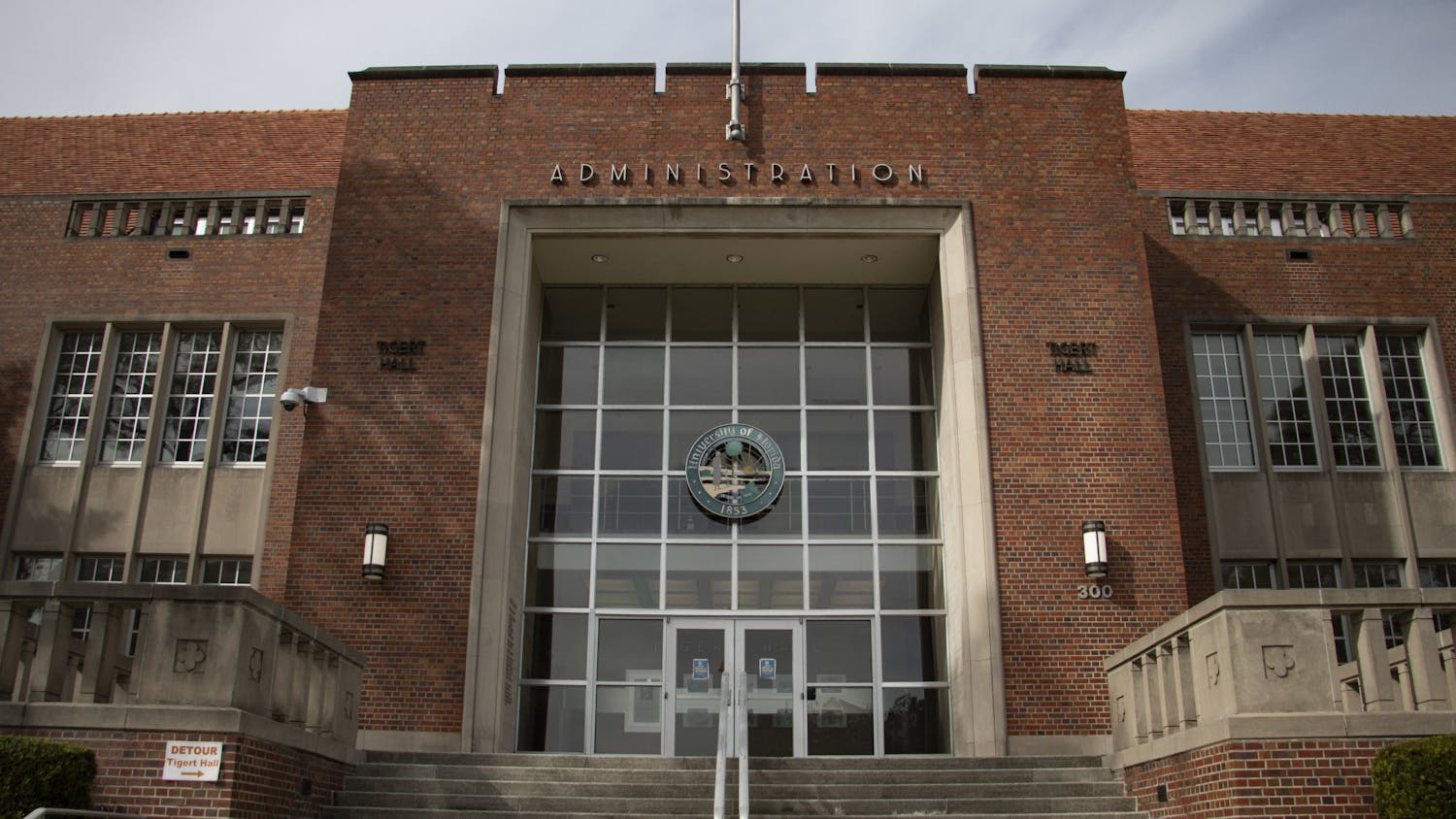New candidates on ballots and polling place switches — just two obstacles Gainesville voters had to juggle to vote in Tuesday’s primaries because of redistricting.
In the aftermath of a controversial state redistricting cycle, Alachua County voters experienced the initial effects of redistricting in Tuesday’s primaries, including the race for a state House District seat. Some residents fear their votes could be silenced as a result of the change.
Ronald Ewalk, 75, who has lived in Gainesville for 10 years, said redistricting is an unfair process.
“This is not a decision for politicians or candidates. You’re asking them to draw lines that are opposing their chances of getting elected?” he said. “How stupid can we be?”
Every 10 years, the U.S. completes a census to keep track of population changes within the country throughout the previous decade. With the new data comes political changes, most notably in the form of new district maps at the federal, state and city level.
For Florida, the 2020 Census and the subsequent redistricting meant a legal and political joust over its 28-seat congressional map, which dismantled Rep. Alfred Lawson’s 5th District, a Democratic stronghold, and increased the number of white-majority districts from 17 to 19.
Democrats alleged DeSantis’ redistricting proposal constituted gerrymandering, a redistricting tactic intended to effect a partisan advantage, and thus a violation of Florida’s constitution.
A subsequent lawsuit led to a political victory for DeSantis as the state Supreme Court decided against nixing the GOP’s preferred redistricting plan in early June.
“DeSantis did this on purpose to dismantle the voting power of Black communities in North Florida,” said Claudia Tio-Cartagena, a 24-year-old UF graduate and Danielle Hawk’s former campaign manager. “Communities who have really dealt with the brunt of the legacies of segregation and Jim Crow.”
State House redistricting also saw large shifts in the recent cycle. Chuck Clemons, the current representative of State House District 21, which covers much of Alachua County and includes parts of Gainesville, is now slated to represent the 22nd District if reelected due to redistricting. Clemons is also a member of the Florida House Redistricting Committee.
The state legislative redistricting passed with large majorities in both chambers of the state legislature.
The 22nd District now includes Archer, Newberry and western and central Gainesville.
Clemons, after noting the lack of controversy associated with the state legislative redistricting, said the tension over the congressional redistricting was natural.
“No vote that we take in the state Legislature is above controversy or having those critics say that it wasn’t fair in one way or another,” Clemons said.
Locally, as the Gainesville City Commission performed its own redistricting earlier this year in response to the census, residents feared that Black votes would be suppressed. Specifically, if two majority White neighborhoods were inducted into District 1 as originally proposed, the influence of Black votes would have been undermined.
The commission ultimately approved a plan that placed the White neighborhoods in District 4 instead; District 4 candidates were unaffected.
Changes brought about by updated census data had a direct impact on local voters, as 11 Gainesville polling places moved due to redistricting. One new precinct was created: precinct 64.
Aaron Klein, an Alachua County Supervisor of Elections Office spokesperson, said the office does its best to avoid any significant disruptions for voters when it redraws the precinct lines by taking a data-first approach.
“We wanted to make sure that if a voter puts down a residence address that is one place, they’re not driving all the way across town past a precinct that was closer to them to then go to their assigned precinct,” he said.
David Arreola, a Gainesville City Commissioner and mayoral candidate, expressed concerns regarding both the precinct changes and the fairness of the redistricting. He believes the state legislative redistricting will have a particularly negative effect on the student population, limiting their electoral power. West University Avenue and Southwest 13th Street cut through both House Districts 21 and 22.
“They’re literally cutting the student vote in half,” he said, in reference to both the State Senate and State House Districts.
Aidan Bush and Fernando Figueroa contributed to this report.
Contact Omar at oateyah@alligator.org. Follow him on Twitter @OAteyah.

Omar Ateyah is a third-year journalism student and the Alligator's Race and Equity reporter. He previously served as the Alligator's crime reporter and as a news assistant on the Metro Desk. He enjoys going on long, thoughtful walks.





